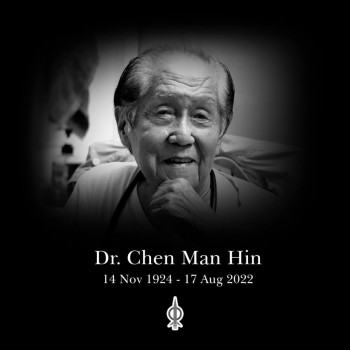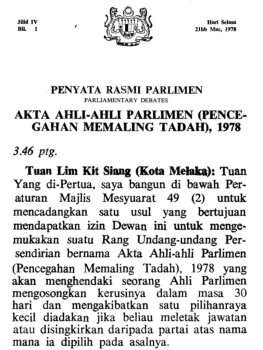Of all of BERSIH’s 8 demands, the Electoral Commission’s inability to clean up the electoral roll has been the most contentious and unsatisfactory. Some of the dubious vote registrations uncovered has raised serious questions about the government’s sincerity in reforming the electoral process.
Besides the irregularities highlighted by Pakatan Rakyat in the minority report on the Parliamentary Select Committee (PSC) on electoral reform, there are many problems that have been detected in the electoral roll (ER).
In his opinion piece for Malaysiakini, director of the Malaysian Electoral Roll Analysis Project (Merap), Dr Ong Kian Ming listed out several questionable types of voter registrations that was found on the ER.
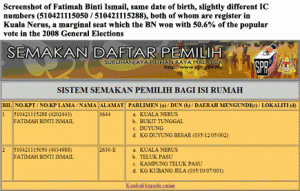 The first category relates to voters with the same name and some with same or similar date of birth. In a part of Merap’s research, it was found that there were 369 voters named ‘Fatimah binti Ismail’ in the Terengganu ER. Out of the 369 mentioned, 10 pairs of voters had same date of births.
The first category relates to voters with the same name and some with same or similar date of birth. In a part of Merap’s research, it was found that there were 369 voters named ‘Fatimah binti Ismail’ in the Terengganu ER. Out of the 369 mentioned, 10 pairs of voters had same date of births.
In another instance, there were 346 ‘Fatimah binti Abdullah’ with 13 pairs found to have same/similar date of births. One particular example even list the same name pair in a same state seat with same date of birth but slightly different identity card (IC) numbers.
Dr Ong remarked that anecdotally, the presence of so many same name pairs with same/similar birth dates “seems like too much of a coincidence especially when one considers that Terengganu experienced a significant percentage increase in the number of voters from 1999 to 2004, after the state fell to PAS in the 1999 general elections.”
Even DAP Secretary-General Lim Guan Eng noted that among the abuses identified were:
* A high percentage of voters who cannot be identified by local residents;
* Multiple registrations by the same voter with more than one identity card number;
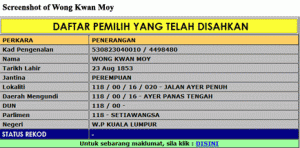 * Voters born before 1900 who are still on the electoral roll including one Wong Kwan Moy, who birth date is listed as 23rd of August, 1853;
* Voters born before 1900 who are still on the electoral roll including one Wong Kwan Moy, who birth date is listed as 23rd of August, 1853;
* Voters with male IC numbers but listed as female voters and vice versa; and
* Some 42,000 voters whose IC numbers cannot be located using records belonging to the National Registration Department (NRD).
“This is just the tip of the iceberg since the Parliamentary Select Committee did not ask MIMOS to conduct a comprehensive review of the electoral roll,” said the Bagan MP in a press statement on April 5 to support BERSIH 3.0 rally.
This raises questions on the effectiveness of the MIMOS audit of the ER data performed under the PSC’s order. Why were refined searches on same names with similar date of births not performed?
Voters Born Overseas
A major category of suspicious entries in the ER is the presence of large number of voters not born in Malaysia on the ER.
Voters who are not born in Malaysia have ‘71′ as their seventh and eighth digits in their IC number. There has been much speculation that non-Malaysian have been given citizenship and hence, voting rights, in order to have them vote for the ruling government.
In August 2011, Malaysiakini had reported that a certain ‘Mismah’ who was originally listed as a permanent resident was registered as a voter and then later being listed as a citizen in the National Registration Department (NRD) website.
Merap’s random analysis on the September 2011 ER for voters in Selangor found 30 voters with ‘Indonesian’ sounding names (only one name). Merap listed the example of a particular Juwairiyah (IC: 560317715158), as a ‘71’ voter in the Gombak parliamentary constituency.
As at September 2011, there are more than 167,000 citizens with ICs containing ‘7x’ (71,74 and 75) in the ER.
Problems with postal voter categories
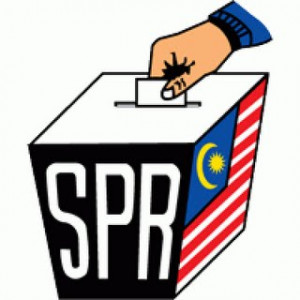 Another major contentious area in the ER relates to the postal voters category. In the first subcategory, it was found that many previously civilian status voters who have joined the army or police force still have their civilian voting status retained in the ER.
Another major contentious area in the ER relates to the postal voters category. In the first subcategory, it was found that many previously civilian status voters who have joined the army or police force still have their civilian voting status retained in the ER.
As a convention, when an individual joins the army or police force, the individual will be assigned an IC with T, R, G or I status. These former civilian status voters should have had their civilian voting registrations deleted from the ER.
Another related problem is the possibility of the army or police personnel’s IC to be used by his or her spouse. In other words, the non-serving spouse is registered as a voter under the serving spouse’s civilian IC number and again under his/her IC number. Merap had uncovered 42 such cases in five Negeri Sembilan parliamentary seats.
In a second subcategory of the postal voter irregularities, Merap found army and police voters who are above retirement age were still registered as postal voters in the ER. In fact, Merap even uncovered a postal voter aged 112 still registered in the Lumut parliamentary constituency.
In another subcategory, new army and police postal voters who are above the recruitment age were registered as new postal voters. According to Dr Ong, the maximum age for army recruits is not more than 30 years of age.
Merap found more than 200 recruits above recruitment age were added to the postal voter ER as new voters while their civilian voter status was deleted from the ER. In addition, Merap also found these over-aged recruits being moved to various constituencies across the country.
Dr Ong said that such examples indicates the ‘possibility that over-aged voters have been illegally ‘recruited’ as army postal voters and then quickly transferred from one electoral constituency to another in successive quarters in order to ‘mask’ the origin of these suspicious army recruits.’
There are more than 200,000 army and police personnel currently serving in the country. Added to this figure are their spouses and also retired army and police personnel which can possibly increase the figure several fold.
This is a pool of voters who may have postal voting status or are related to postal voters. The possibility of certain parties to subvert or change their voting status to manipulate or defraud the ER cannot be ruled out as Merap’s research of the ER indicates.
Source: ‘10 Major Problems In EC’s Electoral Roll’, Ong Kian Ming, Malaysiakini

